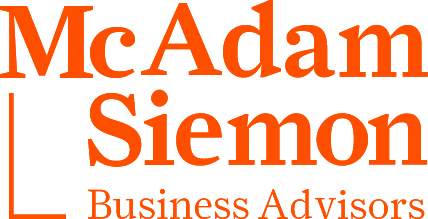News
The key influences of 2024
Posted: 18 December 2023

Uncertainty has reigned over the last few years, but can we expect more consistency as we head into 2024?
We explore some of the key issues and influences.
Inflation and labour supply
RBA Governor Michelle Bullock stated, “Inflation is past its peak and heading in the right direction, but it is likely to return to target a bit more slowly than we previously thought.” While there have been encouraging signs, uncertainty remains. Domestically, inflation is persistent, growth has slowed but the labour market remains tight. And, the Australian economy remains at risk with uncertainty over the Chinese economy and ongoing international conflicts. At this stage, the RBA have not ruled out further interest rate increases.
The unemployment rate remains at 3.7% and the labour market tight. Wages grew 1.3% for the September 2023 quarter and 4.0% over the year, pushing wages to a 14 year high. High-skilled workers are particularly difficult to source, and we appear to have reached a point now where employers are unwilling to pay inflated salaries to acquire those willing to move.
Income tax cuts and the end of some concessions
From 1 July 2024, the stage 3 tax cuts that radically simplify the personal income tax brackets come into effect. The tax cuts collapse the 32.5% and 37% tax brackets into a single 30% rate for those earning between $45,001 and $200,000 – this is assuming the May Federal Budget does not postpone or scrap them!
The superannuation guarantee rate will rise again on 1 July 2024 to 11.5%.
For small and medium businesses with group turnover of less than $50m, a series of concessions are set to end or reduce back to conventional levels:
- The Skills and Training Boost ends on 30 June 2024. The boost provides a bonus deduction equal to 20% of eligible expenditure for external training provided to your workers for costs incurred between 29 March 2022 and 30 June 2024.
- The Small Business Energy Incentive is scheduled to end on 30 June 2024, although legislation to introduce this concession still hasn’t passed through Parliament. The incentive is intended to provide an additional 20% deduction on the cost of eligible depreciating assets that support electrification and more efficient use of energy.
The instant asset write-off for businesses with group turnover of less than $10m is due to reduce back to $1,000 from 1 July 2024. The cost threshold is meant to be $20,000 for the 2024 financial year, but legislation relating to this measure hasn’t passed through Parliament yet.
Worker rights and rewards
There have been a myriad of changes and enhancements to workplace laws across 2023 and employers can expect greater scrutiny in 2024:
- A 5.75% increase in the minimum wage to $23.23 per hour from 1 July 2023.
- New rules and a 2 year limit to some fixed term employment contracts (no renewing).
- A landmark case that defined how to determine whether a worker is a contractor or employee. The ATO has followed through with new rulings to ensure employers are paying the correct entitlements. It’s essential that employers have assessed contractors to ensure that they are classified correctly.
- Greater flexibility for unpaid parental leave.
Tax on super balances above $3m hits Parliament
Legislation enabling an extra 15% tax on earnings on super balances above $3m is before Parliament.
While not a concern for the average worker, if enacted, those with significant property or other illiquid assets in their superannuation fund are most at risk, for example farmers and business operators who own their business property in their self managed superannuation fund (SMSF).
The issue is how the tax is calculated. The tax captures the growth in the balance of a member’s superannuation over the financial year (allowing for contributions and withdrawals). It captures both:
- Realised gains from the sale of assets, and
- Unrealised gains triggered by an increase in the value of superannuation assets. For example, if the value of a property increases.
If the member’s total super balance has decreased – the loss can be offset against future years.
The ATO will calculate the tax each year. Members with balances in excess of $3 million will be tested for the first time on 30 June 2026, with the first notice of assessment expected to be issued to those impacted in the 2026-27 financial year.
If you are likely to be impacted by the impending new tax, it is important to speak to your financial adviser. While keeping assets within superannuation will remain the best option for many from a tax and planning perspective, it’s important to ensure that you’re in the best possible position.
Merry Christmas
From all of our team, we want to take this opportunity to wish you a safe and happy Christmas.
The year has gone quickly and has no doubt had its challenges. The holidays are an opportunity to take stock and revel in the spirit of the season.
We will look forward to working with you again in 2024 and making it the best possible year for you.
Office closure
Our office will be closed for Christmas from Friday 22 December 2023 and will reopen on Monday 8 January 2024.
Quote of the month
“There are those who give with joy, and that joy is their reward.” Kahlil Gibran, author
